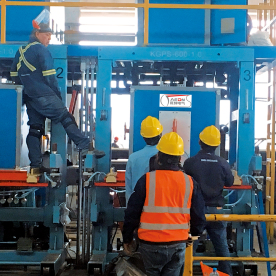
Unlocking the Potential of HSS Blades: Why High-Speed Steel is the Ultimate Choice for Precision Cutting Applications
High-speed steel (HSS) blades have become a cornerstone in the world of machining and cutting tools. Renowned for their ability to withstand high temperatures and retain sharpness, HSS blades are utilized across a multitude of industries, from woodworking to metal fabrication. Knowing the unparalleled advantages and versatility of HSS blades can significantly impact the quality of your work and the efficiency of your operations.
To understand the importance of HSS blades, it is crucial to look at how they differ from traditional cutting tools. HSS is a special kind of tool steel that incorporates elements such as tungsten, molybdenum, chromium, and vanadium. These alloying elements enhance the steel’s hardness, heat resistance, and durability. Consequently, HSS blades maintain their sharpness longer than conventional steel tools, reducing the time and cost associated with frequent replacements and sharpening.
One of the most notable characteristics of HSS blades is their exceptional toughness. When subjected to extreme conditions and high-speed operations, HSS blades continue to perform without losing their structural integrity. This toughness is a key asset in environments where cutting tools experience varied and intense stresses, such as in high-precision machine shops designed for production runs.
Another significant advantage of HSS blades is their heat resistance. Unlike carbon steel, which can lose its hardness when exposed to elevated temperatures, HSS retains its hardness even when cutting at high speeds. This trait enables manufacturers to ramp up production without the concern of tool degradation. The longevity and consistent performance of HSS blades mean that they can operate at higher RPMs (revolutions per minute) without compromising the quality of the cut.

Unlocking the Potential of HSS Blades: Why High-Speed Steel is the Ultimate Choice for Precision Cutting Applications
Precision is another hallmark of HSS blades. The sharp edges, once honed and ground, are capable of making clean and accurate cuts with minimal burring and distortion. This is especially important in applications that require tight tolerances, such as aerospace components, where even the slightest deviation can lead to catastrophic results. HSS blades are designed for functionality without sacrificing performance, making them ideal choices for intricate and delicate work.
Moreover, HSS blades are highly versatile. They are available in various shapes, sizes, and configurations, making them suitable for an extensive range of applications. Whether you are engaged in drilling, milling, or turning, there is an HSS blade design tailored to meet your specific needs. The adaptability of these tools allows manufacturers to standardize their cutting processes, leading to greater efficiency and consistency in production.
Furthermore, HSS blades can also be resharpened, providing an eco-friendly and cost-effective solution for businesses that would otherwise need to dispose of dull tools. By resharpening HSS blades, companies can extend the life of their tools significantly, yielding higher return-on-investment (ROI) in their cutting tools.

Unlocking the Potential of HSS Blades: Why High-Speed Steel is the Ultimate Choice for Precision Cutting Applications
In the woodworking industry, HSS blades are widely used for saws and routers. They can cut through various materials, including hardwoods, softwoods, and composite materials, providing clean and precise edges. In metalworking, HSS blades are essential for drills, taps, and milling cutters, facilitating efficient removal of material while maintaining accuracy.
However, it is also essential to consider the right application and conditions under which HSS blades should be utilized. Even though HSS is robust and versatile, cutting superalloys or certain materials like titanium may require specialized blades made of other materials like carbide or cobalt to achieve optimal results. Therefore, understanding the material composition you’re working with is vital for selecting the appropriate tool.
In conclusion, HSS blades embody endurance, precision, and versatility, making them a favorable choice for businesses in a variety of industries. Their capability to perform under heat and stress, along with their long lifespan and adaptability, confirms that HSS blades are not just tools but vital assets in achieving efficiency and excellence in production. Adopting HSS blades can undoubtedly lead to enhanced productivity and quality in any workshop or manufacturing setting, ultimately paving the way for success in today’s competitive market.Automatic Tube making machine



